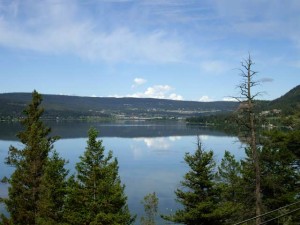In June of 2014, the Supreme Court of Canada granted the Tsilhqot’in people title to 1750 square kilometers of land West of Williams Lake: this has already created an unexpected impact on resource development in the interior of British Columbia. If the Aboriginal land claim is further extended, business for the Taseko Mines will become extremely intricate seeing as they will need to go through the First Nations Government for any negotiation. This highlights the need for businesses to create and maintain effective and cohesive relationships with the First Nations. After looking at what has happened between the Western Bands and Enbridge, I realize an agreement between the Taseko the Tsilhqot’in would be time consuming and expensive.
Businesses who operate close to aboriginal land often face difficult tasks. It appears developers who are attempting to seek approval on projects inside Aboriginal borders will be forced to go through a “new” process, often ending in the developers providing financial compensation for the ability to use the land. Instead, I feel companies, such as Taseko should create value for aboriginal stakeholders. Regardless, in todays changing environment, companies are forced to learn to negotiate directly with aboriginals, creating the need for actual relationships.
In response to:
http://www.vancouversun.com/news/metro/Unilateral+park+declared+Tsilhqot+includes+Prosperity+mine/10192766/story.html
